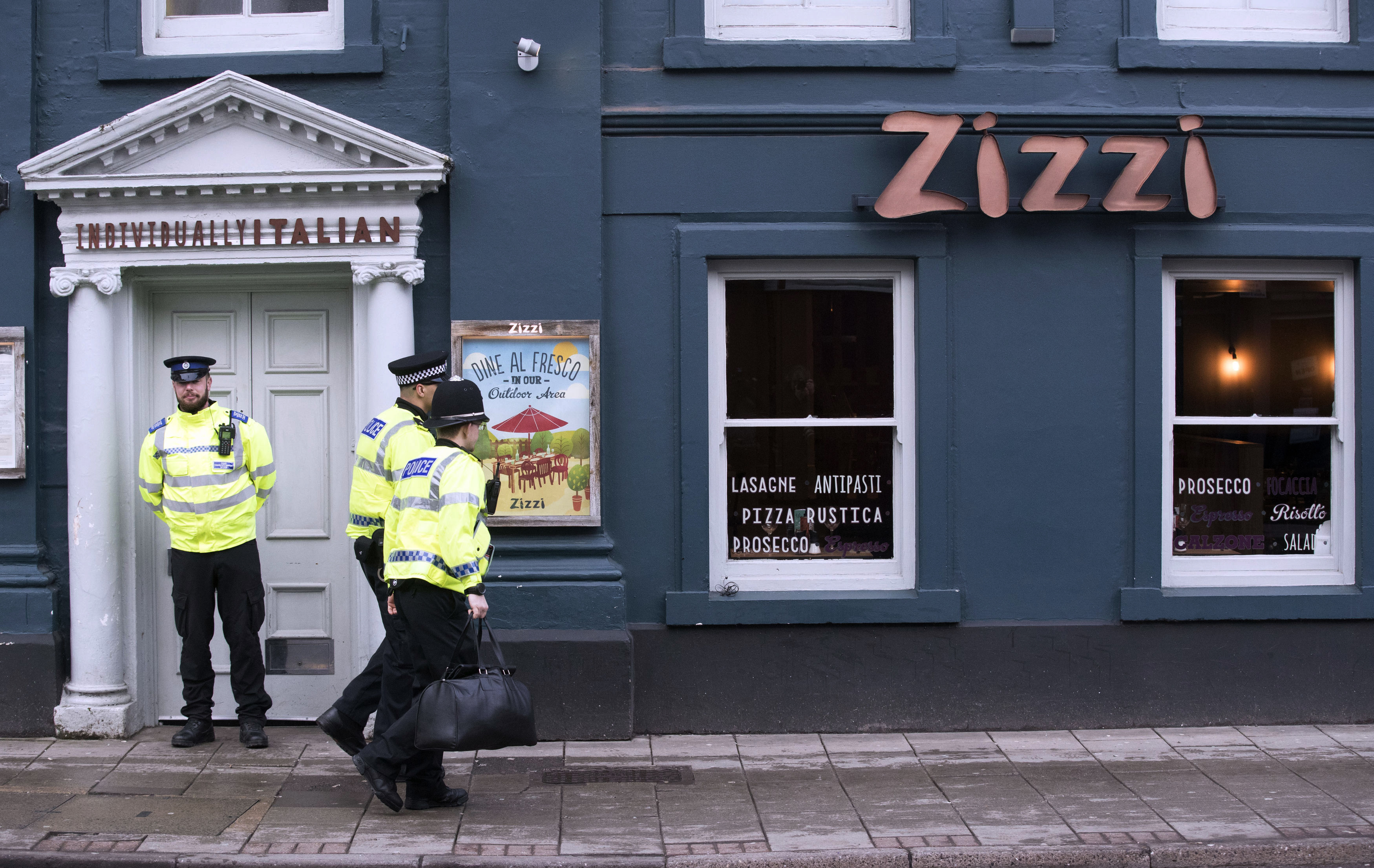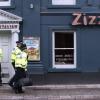
British counter-terror specialists offered expertise Tuesday to police in southern England Tuesday as they sought to unravel the mystery of why a former Russian spy fell critically ill following expos
SALISBURY, England (AP) — British counter-terror specialists offered expertise Tuesday to police in southern England Tuesday as they sought to unravel the mystery of why a former Russian spy fell critically ill following exposure to an “unknown substance.”
Authorities maintained a cordon near the spot — a bench near a shopping mall — where former double agent Sergei Skripal and an unidentified woman collapsed Sunday in Salisbury, 90 miles (145 kilometers) southwest of London. British media reported that the woman was Skirpal’s daughter.
Though authorities are trying to keep an open mind, the incident drew parallels to the death of former Russian agent Alexander Litvinenko, who was poisoned with radioactive polonium 11 years ago in London.
“I think we have to remember that Russian exiles are not immortal, they do all die and there can be a tendency for some conspiracy theories,” Metropolitan Police assistant commissioner Mark Rowley told the BBC.
“But likewise we have to be alive to the fact of state threats as illustrated by the Litvinenko case.”
Skripal, 66, who was convicted in Russia on charges of spying for Britain and sentenced in 2006 to 13 years in prison. He was freed in 2010 as part of a spy swap, which followed the exposure of a ring of Russian sleeper agents in the United States.
The Kremlin said Russia has not been approached by British authorities to help in the investigation. But Dimitry Peskov, President Vladimir Putin’s spokesman, said Tuesday at a daily conference call with media in Russia that “Moscow is always ready to cooperate.”
Wiltshire Police, which is responsible for the Salisbury area, said the man and woman appeared to know one another and had no visible injuries.
“They are currently being treated for suspected exposure to an unknown substance. Both are currently in a critical condition in intensive care,” police said in a statement.
The discovery led to a dramatic decontamination effort. Crews in billowing yellow moon suits worked into the night spraying down the street, and the Salisbury hospital’s emergency room was closed.
A closed circuit television image of a man and woman walking through an alleyway connecting the Zizzi restaurant and the bench where Skripal and the woman were found is believed to be of interest to police.
“Police had a good look at the footage and were interested in these two people. It was the only image they took away,” said Cain Prince, 28, the manager of a nearby gym. “They wanted a list of everyone in the gym between 3 p.m. and 4 p.m. as well.”
Public records list Skripal as having an address in Salisbury.
Skripal served with Russia’s military intelligence, often known by its Russian-language acronym GRU, and retired in 1999. He then worked at the Foreign Ministry until 2003 and later became involved in business.
After his 2004 arrest in Moscow, he confessed to having been recruited by British intelligence in 1995 and said he provided information about GRU agents in Europe, receiving over $100,000 in return.
At the time of Skripal’s trial, the Russian media quoted the FSB domestic security agency as saying that the damage from his activities could be compared to harm inflicted by Oleg Penkovsky, a GRU colonel who spied for the United States and Britain. Penkovsky was executed in 1963.
The circumstances surrounding Sunday’s incident were still murky and police urged the public not to speculate. But few could avoid invoking the name of Litvinenko — the former Russian agent who died after drinking polonium-210-laced tea in a swanky London hotel in 2006.
His illness was initially treated as unexplained; evidence eventually emerged indicating he had been deliberately poisoned with the radioactive material.
A British judge wrote in a 2016 report that Litvinenko’s death was an assassination carried out by Russia’s security services — with the likely approval of Putin. The Russian government has denied any responsibility.






